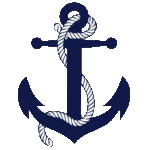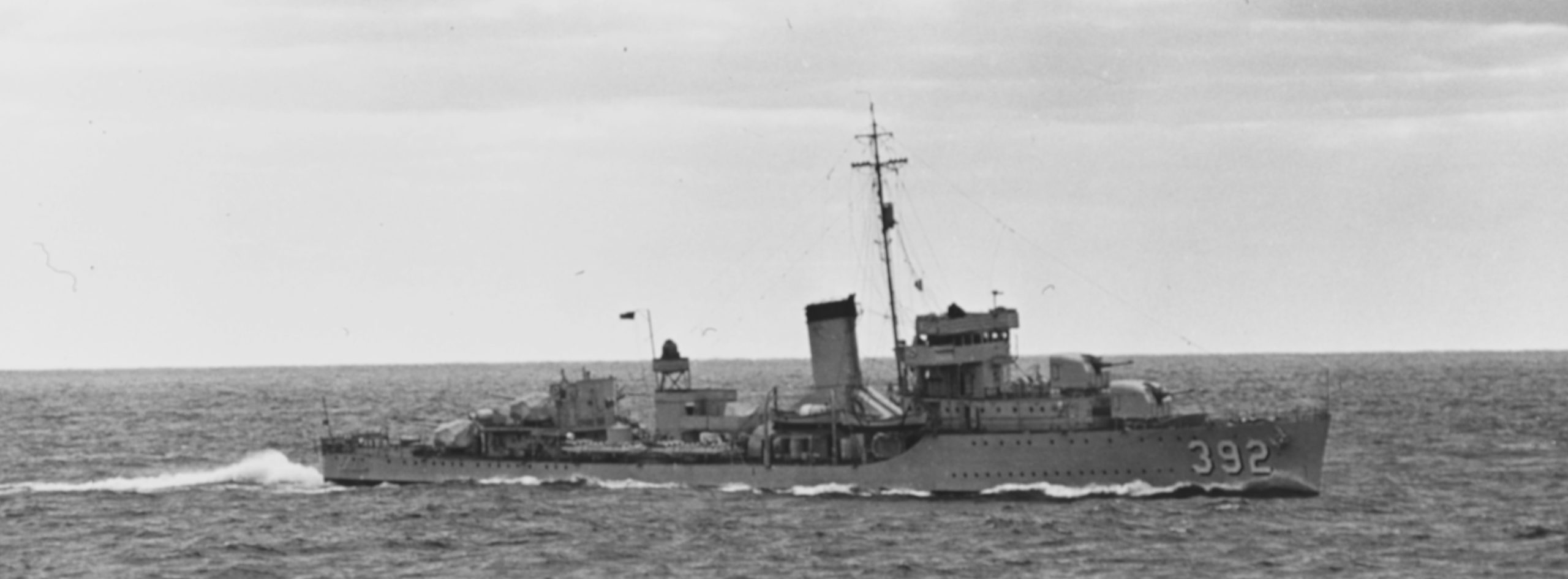This site is dedicated to the US Navy tradition of writing the first log of the new year in verse.
Welcome to the Midwatch in Verse Project, the location for information regarding this old US Navy tradition. One of the first  outcomes of this project was the publication of the first comprehensive book-length treatment of the topic, Midwatch in Verse: New Year’s Deck Log Poetry of the United States Navy, 1941-1946, published by McFarland Books. The book is dedicated to the deck log poetry written during World War II, but this website will continue to post content about the New Year’s Midwatch poetry tradition—its history and its various manifestations.
outcomes of this project was the publication of the first comprehensive book-length treatment of the topic, Midwatch in Verse: New Year’s Deck Log Poetry of the United States Navy, 1941-1946, published by McFarland Books. The book is dedicated to the deck log poetry written during World War II, but this website will continue to post content about the New Year’s Midwatch poetry tradition—its history and its various manifestations.
As a service to the writers of deck log poems, we sometimes attempt to locate them or their family members to provide a copy of this bit of US Navy tradition. We find that surviving deck log poem writers rarely remember their small slice of service in which they took on the mantle of a bard. Family members of deceased writers are usually delighted to receive their relative’s attempt to wrangle the complexities of a deck log into a coherent verse.
“A unique and original telling of the story of the US Navy in World War II. A humane and delightful look at young officers in wartime called on to perform the most incongruous of duties—to write a poem in the place of a deck log. Midwatch in Verse informs, delights, and reveals a side of the US Navy known only to the few. Highly recommended.”
Admiral James Stavridis, author of “To Risk It All: Nine Conflicts and the Crucible of Decision” and “2034: A Novel of the Next World War.” Sixteenth Supreme Allied Commander at NATO – 2009-2013.
Click this link to go to McFarland Books’ page to order the paperback version. The book is also available from Amazon and Barnes & Noble. McFarland does not sell ebooks directly. Ebooks are available through a variety of sources including Barnes & Noble, Ebooks, Rakuten/Kobo, and Amazon.
Midwatch in Verse examines the little-known Navy tradition of writing the New Year’s midwatch deck log in poetry on U. S. Naval ships. All other watches of the year required mundane, minute details of ships’ condition, and nothing more. This watch, and only this watch, allowed young officers to enter the log as poetry.
The midwatch poetry written from 1941 to 1946 was formed in the crucible of World War II. Each chapter examines a ship that engaged in combat during World War II, beginning with an overview of the history of the ship. It then offers a midwatch poem (or poems) written during those years, relating the poem to that moment in history. The chapter closes with a biographical sketch of the writer(s), revealing the individual humanity of the person caught up in the inhumanity of war. The ships include giants of history, like the USS Enterprise, and small and nameless craft, like PC 1264.
The inexplicable tradition of writing the first deck log of each year in verse lays bare the humanity—in particular, the American humanity—that persisted in the most inhumane of endeavors, warfare.
What’s New?
Added a new page that contains the magazine articles published by The Midwatch in Verse Project. (11/1/2025).
Louis Arthur Norton reviewed Midwatch in Verse: New Year’s Deck Log Poetry of the United States Navy, 1941-1946 in the Autumn issue of The Northern Mariner published by the Canadian Nautical Research Society (click here to read the review). (5/9/2025).

When Rhyme Is a Crime: or The Navy Made Me Do It
Certain items of information are expected to be included in US Navy ships’ logs—ship’s location, connection to pier, material condition, condition of readiness, other ships present, source of power, location of SOPA—and there are only so many ways this limited … Continue reading →
Announcing The Midwatch in Verse Project
In February of 2023, McFarland Books published the first book-length treatment of an old US Navy tradition of writing the first deck log entry of the New Year in verse. Titled Midwatch in Verse: New Year’s Deck Log Poetry of … Continue reading →
Midwatch in Verse is now shipping
Greetings! Just a note to let you know that the softcover version of Midwatch in Verse is now shipping from the publisher, McFarland Books. An e-book version will eventually be available, but at this time we do not know the … Continue reading →
What is a “typical” deck log?
According to the Naval History & Heritage Command (NHHC): A Navy ship’s deck log is a daily chronology of certain events for administrative and legal purposes. Preparation of logs is governed by the current edition of Office of the Chief … Continue reading →
Oldest Midwatch Poem [to date]
The Ship: USS Idaho (BB 42) was a New Mexico-class dreadnaught battleship commissioned March 24, 1919. While returning from exercises in the western Pacific in late 1925, Idaho carried the famous Naval airman Commander John Rodgers back to San Francisco … Continue reading →
The Origins of the New Year’s Deck Log Poetry Tradition
More than sixty years ago, in the January 1959 issue of the US Naval Institute Proceedings, Captain Robert W. McNitt, USN, wrote an article describing the unusual Navy tradition of writing the New Year’s deck log on US ships … Continue reading →

